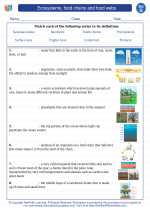Earthworms
Earthworms are a type of annelid worm that belong to the phylum Annelida. They are important organisms in the soil ecosystem, playing a crucial role in aerating and fertilizing the soil. Here are some key points to study about earthworms:
Anatomy of Earthworms
- Body Segments: Earthworms have a long, tube-like body that is divided into segments. These segments are covered in tiny bristles called setae, which help the earthworm move and burrow through the soil.
- Digestive System: Earthworms have a straight digestive system that runs from their mouth to their anus. They ingest soil and organic matter, digesting it with the help of gizzard and intestines.
- Circulatory System: Earthworms have a closed circulatory system with multiple pseudohearts that pump blood through the body.
- Respiratory System: Earthworms breathe through their skin, which needs to be moist for gas exchange to occur effectively.
Ecological Importance
- Soil Aeration: Earthworms tunnel through the soil, creating channels that allow air and water to penetrate the soil, which helps in oxygenating the soil and improving drainage.
- Soil Fertility: Earthworms consume organic matter and excrete nutrient-rich castings that enhance the fertility of the soil.
- Decomposition: Earthworms play a key role in breaking down dead plant material, aiding in the decomposition process.
Reproduction
Earthworms are hermaphroditic, meaning they have both male and female reproductive organs. During mating, two earthworms exchange sperm, and each worm then forms a cocoon in which it deposits its own eggs and the sperm it has received from its mate. The cocoon is then buried in the soil, where the young earthworms develop before hatching.
Behavior
- Movements: Earthworms exhibit various movements, including peristalsis for crawling and stretching or contracting to move through the soil.
- Response to Environment: Earthworms are sensitive to light, vibrations, and moisture, and they respond by burrowing deeper into the soil or moving to more favorable environments.
Study Tips
When studying earthworms, it's helpful to create diagrams of their anatomy, including the digestive and circulatory systems. Additionally, consider conducting observations of earthworm behavior in a controlled environment to better understand their responses to environmental cues.
Understanding the significance of earthworms in soil health and the ecosystem is crucial for appreciating their ecological role and conservation. Be sure to make connections between earthworm behavior and their impact on soil fertility and structure.
Lastly, consider researching specific species of earthworms and their adaptations to different environments, as this can provide valuable insights into their diversity and ecological significance.
Good luck with your studies on earthworms!
.◂Science Worksheets and Study Guides Seventh Grade. Ecosystems, food chains and food webs

 Activity Lesson
Activity Lesson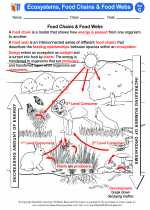
 Worksheet/Answer key
Worksheet/Answer key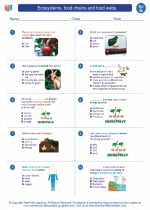
 Worksheet/Answer key
Worksheet/Answer key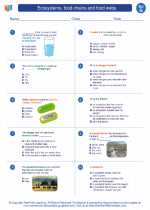
 Worksheet/Answer key
Worksheet/Answer key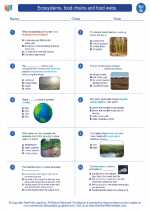
 Vocabulary/Answer key
Vocabulary/Answer key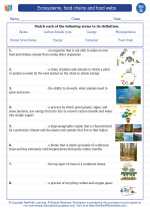
 Vocabulary/Answer key
Vocabulary/Answer key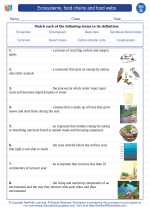
 Vocabulary/Answer key
Vocabulary/Answer key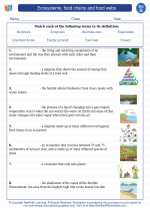
 Vocabulary/Answer key
Vocabulary/Answer key
 Vocabulary/Answer key
Vocabulary/Answer key